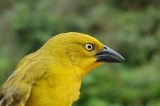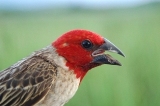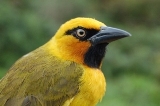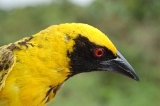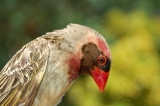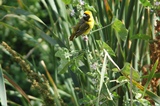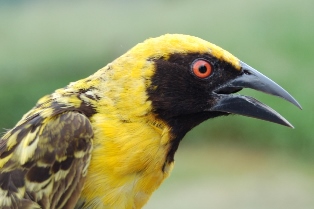Weaver news
| Collingham YC, Huntley B, Altwegg R, Barnard P, Beveridge OS, Gregory RD, Mason LR, Oschadleus HD, Simmons RE, Willis SG, Green RE. 2014. Prediction of mean adult survival rates of southern African birds from demographic and ecological covariates. Ibis online.
Abstract.
Estimates of annual survival rates of birds are valuable in a wide range of studies of population
ecology and conservation. These include modelling studies to assess the impacts of climatic
change or anthropogenic mortality for many species for which no reliable direct
estimates of survival are available. We evaluate the performance of regression models in predicting
adult survival rates of birds from values of demographic and ecological covariates
available from textbooks and databases. We estimated adult survival for 67 species using
dead recoveries of birds ringed in southern Africa and fitted regression models using five
covariates: mean clutch size, mean body mass, mean age at first breeding, diet and migratory
tendency. Models including these explanatory variables performed well in predicting adult
survival in this set of species, both when phylogenetic relatedness of the species was taken
into account using phylogenetic generalized least squares (51% of variation in logit survival
explained) and when it was not (48%). Two independent validation tests also indicated good
predictive power, as indicated by high correlations of observed with expected values in a
leave-one-out cross validation test performed using data from the 67 species (35% of variation
in logit survival explained), and when annual survival rates from independent mark–
recapture studies of 38 southern African species were predicted from covariates and the
regression using dead recoveries (48%). Clutch size and body mass were the most influential
covariates, both with and without the inclusion of phylogenetic effects, and a regression model
including only these two variables performed well in both of the validation tests (39 and 48%
of variation in logit survival explained). Our regression models, including the version with only
clutch size and body mass, are likely to perform well in predicting adult survival rate for
southern African species for which direct survival estimates are not available.
7 weavers were included in this study, and their survival rates (in descending order) were found to be: 66.5% Village Weaver
Literature as featured in Weaver Watch news items |
